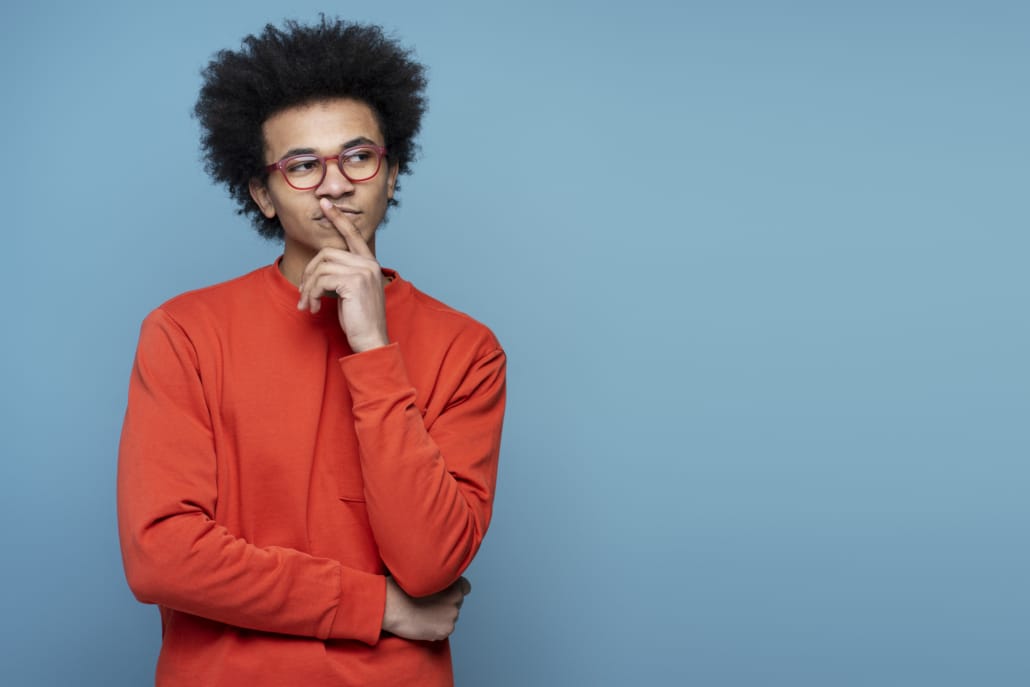Creativity: Why Your First Idea is Probably Your Worst Idea
Let’s face it, being creative is hard.
Not only do you have to avoid falling into the trap of thinking in tired old ways (tricky enough in itself), you have to come up with new stuff into the bargain.
It can take ages and be genuinely difficult. Plus, it’s a process which might be carried out in vain anyway – because it’s perfectly possible (and sometimes likely) that you will fail to think of anything truly original at all.

Hours of time and effort. Wasted.
All of which explains why, when you come across a problem that needs solving, seizing upon an initial thought (any initial thought?), and seeing it as the solution is so tempting.
To be fair, what you’ve arrived at might be a solution. But it’s highly unlikely to be the best one.
This reminds me of an anecdote from columnist and food writer Giles Coren about a conversation with his father, writer and satirist Alan Coren:
“When I was about 11 and doing creative writing at school, I would always go to my dad and say, ‘What shall I write?’. He would always say, ‘Whatever the first thing is that comes into your head, don’t write that because that’s what everyone will write. When the second idea comes into your head, don’t write that either because that’s what the bright kids will write. Wait for the third idea, because that’s the one that only you will do’.”
Notice how passive Coren suggests the process is. He describes an idea as something which “comes into your head”. Rather than working hard at it, focussing on the issue at hand and forcing yourself to find an answer, it seems more likely that a solution will arrive while you’re doing something else: going for a walk, making the lunch, even having a nap. (Comedian Sara Pascoe says she gets many of her ideas during that dream-like state just before falling asleep or as she wakes up; fellow comic Paul Sinha says he finds most of them arrive during long car journeys after gigs). As Hamlet recognised, “thinking too precisely on the event” – to borrow a phrase from Shakespeare’s own creative output – can lead to its own pitfalls.
The trouble with ideas which arrive straight away is that they are often clunkingly predictable. We’ve all seen films, plays or TV dramas where hasty, ill-considered writing has led to ploddingly obvious dialogue which only exists to explain the plot. Such writing is often described as being too ‘on the nose’. Compare the pedestrian “I’m going to threaten him so that he does what I want” with the shorter and much more sophisticated “I’m going to make him an offer he can’t refuse”.
I went to see the musical ‘Blood Brothers’ the other week, and watched two hours of class-ridden angst and tragedy, only to have the narrator say at the end: “And do we blame superstition for what came to pass? / Or could it be what we, the English, have come to know as ‘class’?” CLUNK! Even Willy Russell might agree that deleting those last two ‘on the nose’ lines would now be preferable.
This is what worries me about Artificial Intelligence. In the search for a quick solution, a few themes pumped into ChatGPT will produce a result in seconds. But there’s little or no sophistication involved. What’s more, this problem is likely to get worse, not better. If AI will one day generate most of the content we consume, its own future source material will be the very stuff it has already created: a vicious circle of anti-creativity.
Nevertheless, the element of waiting – even if you’re carrying out some other task while you do so – would appear to be an essential part of the mix. Actor, comedian, writer, producer and all-round creative genius John Cleese certainly thinks so. He writes in his book ‘Creativity – a short and cheerful guide’:
“Leaving a question unresolved, just leaving it open, makes some people anxious. They worry. And if they can’t tolerate that mild discomfort, they go ahead and rush the decision. They probably fool themselves that they’re being decisive. But creative people are much better at tolerating the vague sense of worry that we all get when we leave something unresolved.”
So, it’s partly a question of being prepared to wait, but also being comfortable doing so. To become more creative, we need to get better at putting up with the unease of not arriving at the answer. Not immediately, anyway.
Others have written here and here, about the benefits of waiting once an initial idea has formed.
Clearly, if you’ve got a deadline coming up, and that speech needs finishing tomorrow, this relaxed approach may be a luxury you simply don’t have. Which is why leaving time to prepare your material means not only leaving time to write it, but to wait for ideas to come to you as well.
That’s the thing: it’s supposed to be hard. That should not come as a surprise to any of us – but we should actually relish the fact that it is time consuming.
Because if it isn’t, we’re probably not being creative enough.
Image: iStock – Mariia Vitkovska
- Introducing the ‘Act Out’: - October 29, 2024
- Politics as Entertainment - July 2, 2024
- All Presenters Need a Critical Friend - April 23, 2024




We tend to favor information that confirms our existing beliefs, making it difficult to consider contradictory evidence or opposing viewpoints. Your blog is a great resource, and I’m thankful for it. I really appreciate the insights you provided in your blog. Thank you for sharing this valuable information.